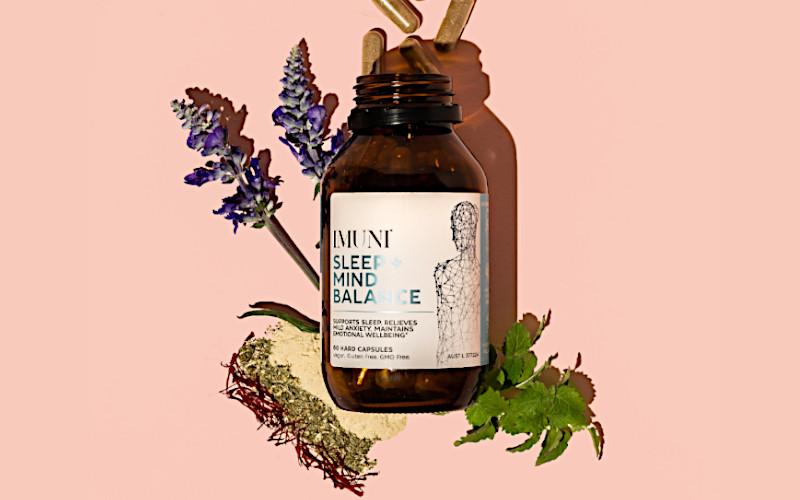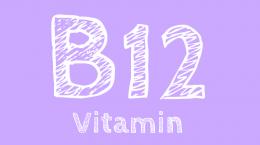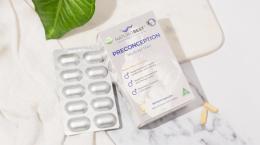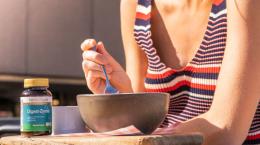Let's explore the science of sleep. Can Supplements support your sleep?

IMUNI Sleep + Mind Balance is a specialised blend of herbal supplements traditionally used in Western herbal medicine to maintain emotional wellbeing, support healthy mood balance, relieve symptoms of mild anxiety and stress, support healthy sleeping patterns; relieve sleeplessness and reduce time to fall asleep.
Each of the ingredients contained in this formulation have been carefully selected to create a comprehensive and convenient formulation for daily use. Let's take a deeper dive into each ingredient and why we chose to feature them in our IMUNI Sleep + Mind Balance!
Note: This medicine may not be right for you. Read the warnings before purchase. Follow directions for use. If symptoms persist, worsen or change, talk to your health professional.
Withania Somnifera (Ashwagandha)
Ashwagandha has a long and established history of use in traditional Western herbal medicine as an ‘adaptogenic herb’. Adaptogens are theorised to help the body resist physiological and psychological stress. Emerging scientific evidence suggests a specific form of Ashwagandha known as KSM-66® might be beneficial for relief of mild anxiety and stress.
KSM-66® Ashwagandha is a branded, full-spectrum extract, with the highest concentration of all major root only extracts available on the market today. It is produced using a unique proprietary extraction process, based on “Green Chemistry” principles, which means no alcohol or chemical solvents are used in the extraction process.
In adults with chronic stress, clinical research suggests that KSM-66® ashwagandha taken at a dose of 300mg twice daily for 60 days can reduce perceived stress levels by 30% to 44%. These changes remain statistically significant when compared to placebo.
In one prospective, randomised, double-blind, placebo-controlled study, the stress-relieving effect of Ashwagandha root extract was investigated in 60 stressed healthy adults. Study participants took KSM-66® capsules at doses of 125mg or 300mg twice per day for eight weeks, or placebo. The study found that KSM-66® taken at a total daily dose of 250mg or 600mg resulted in statistically significant improvements in sleep quality and reductions in perceived stress scores.
Another 60-day, randomised, double-blind, placebo-controlled trial conducted in India tested the effects of a 240mg capsule of Ashwagandha (standardised to 35% or 84mg withanolide content) in relieving stress amongst 60 healthy adults. Compared to baseline, a daily dose of Ashwagandha resulted in a 41% reduction in Hamilton Anxiety Scale score (P = 0.001*), compared to a 24% reduction in the placebo group suggesting superior effectiveness over placebo.
A further randomised, double-blind, placebo-controlled study evaluated the efficacy of KSM-66® in reducing stress and anxiety in 64 stressed adults. The study found that KSM-66® taken at a dose of 300mg twice per day for 60 days resulted in a significant reduction in stress levels (P < 0.0001) on all stress assessment scales, relative to placebo. Adverse events were mild, and no serious adverse events were reported.
*NB: p value less than 0.05 suggests that the likelihood of these results being due to chance alone is very unlikely. These studies suggest that high grade KSM-66® Ashwagandha root extract may be helpful for reducing mild anxiety and stress. However, this product is not recommended to be used for more severe forms of anxiety without seeking the advice of an appropriately qualified medical professional.
Crocus sativus (Saffron):
Saffron is the most expensive spice in the world and has been used as a medicinal supplement for at least 3000 years. In addition to its longstanding legacy of traditional use in Western herbal medicine, emerging scientific evidence continues to demonstrate its positive effects on mental wellbeing. A standardised saffron extract known as Safr’Inside™ is now backed by more than 10 clinical studies. The saffron is cultivated with expertise dating back 3000 years but only the tip of the stigma is collected due to the high concentration of active compounds found in this part of the plant.
The results of a randomised, double-blind, placebo-controlled trial were recently published by Pachikian et al in April 2021. The trial was designed to assess the effects of Safr’Inside™ on sleep quality with subjects receiving either placebo or Safr’Inside™ at a dose of 15.5mg daily administered to 64 healthy adults with mild to moderate sleep disturbance over a period of 6 weeks. Compared to baseline, supplementation with Safr’Inside™ resulted in improvements in sleep quality (p = 0.014), sleep latency (p = 0.032) and sleep duration (p = 0.013). Saffron was found to be well-tolerated with no serious adverse events. Another randomised, double-blind, placebo-controlled trial conducted by Lopresti et al in 2020 assessed 63 healthy Australian adults with self-reported sleep problems and demonstrated that taking a saffron extract at a dose of 14mg twice per day resulted in significant improvement in sleep quality, with the bulk of the improvements occurring within 1 week of commencing saffron supplementation.
Another randomised, double-blind, placebo-controlled trial published by Jackson et al in 2021 assessed the effect of Safr’Inside™ on mood, well-being and response to stress. 56 healthy adults were randomised to receive either placebo or 15mg Safr’Inside™ twice per day for 8 weeks. At the start of the study, participants reported feelings of low mood and mild anxiety and/or stress.
The results showed that saffron supplementation resulted in several beneficial effects on mood with improvement in the POMS depression scale score compared to placebo (p = 0.05).
A randomised double-blind, placebo-controlled trial conducted by Kell et al published in 2017 assessed the effect of placebo vs saffron supplementation in 128 healthy Australian adults over 4 weeks. The trial showed that supplementation with saffron at a dose of 28mg per day resulted in statistically significant improvements in mood (p = 0.001) and stress (p = 0.010) across several standardised assessment scales, with superiority over placebo.
*NB: p value less than 0.05 suggests that the likelihood of these results being due to chance alone is very unlikely. These studies suggest that high grade Safr’Inside™ saffron may be helpful for maintaining healthy sleeping patterns and supporting healthy mood balance.
However, this product is not recommended to be used for more significant sleep or mood disorders without seeking the advice of an appropriately qualified medical professional.
Lavandula angustifolia (Lavender oil)
Lavender has a long history of Traditional use for a range of conditions and has become widely recognised as a nervous system relaxant. Current scientific evidence for oral use of lavender oil in capsule form is positive, supporting use for general mental wellbeing.
Some clinical trials demonstrate that taking lavender oil capsules at a dose of 80mg per day may assist in alleviating symptoms of mild anxiety and stress and improving sleep. A randomised, double-blind, placebo-controlled clinical trial conducted by Kasper et al in 2010 compared taking 80mg lavender oil per day with placebo in 216 adults with mild anxiety over a period of 10 weeks. The study found that lavender oil supplementation resulted in meaningful improvement in anxiety and anxiety-related sleep disturbance, without unwanted sedative effects.
Another clinical trial conducted by Woelk et al also assessed lavender oil supplementation at a dose of 80mg per day in 77 adults with anxiety. The study found that lavender oil was helpful in improving symptoms of anxiety, worry and sleep disturbance.
A meta-analysis conducted by Moller et al in 2019 assessed the effect of lavender oil at a dose of 80mg per day from results of three double-blind, randomised, placebo-controlled clinical trials involving patients with subthreshold (mild) anxiety.
The results of the meta-analysis revealed that lavender oil was significantly superior to placebo in alleviating anxiety (p = 0.003) and more effective than placebo in improving sleep latency (i.e. time taken to fall asleep, p = 0.001) and sleep disturbance (p = 0.014). In all three RCTs, supplementation with lavender oil was found to be well tolerated, with adverse event rates similar to those observed for placebo.
*NB: p value less than 0.05 suggests that the likelihood of these results being due to chance alone is very unlikely. These studies suggest that lavender oil may be helpful for reducing mild anxiety and stress and supporting healthy sleeping patterns.
However, this product is not recommended to be used for more severe forms of anxiety or sleep disorders without seeking the advice of an appropriately qualified medical professional.
Passiflora incarnata (Passionflower)
Spanish conquerors first learned of passionflower from the Aztecs of Mexico who used it as a medicinal herb to treat insomnia and nervousness. The plant was subsequently taken to Europe where it was cultivated and introduced into European medicine.
Today, passionflower is often used in Western herbal medicine to treat sleep disturbance and mild anxiety. Some scientific literature suggests that passionflower may potentiate the effects of GABA, an inhibitory neurotransmitter that plays an important role in neurological function and cognition.
One randomised, double-blind, placebo-controlled trial assessed the effect of a passionflower extract at a dose of 60mg per day versus placebo on sleep quality in 110 adults with sleep disturbance. The study found that after 2 weeks, passionflower supplementation resulted in statistically significant improvement in total sleep time (p = 0.049), compared with placebo.
Another double-blind, placebo-controlled trial published by Ngan et al in 2011 assessed the effects of passionflower herbal tea on subjective sleep quality. This study assessed 41 adults and found that taking passionflower tea daily for 7 days resulted in improved subjective ratings of sleep quality (p < 0.01).
Another randomised, double-blind clinical trial assessed efficacy of passionflower in the treatment of mild anxiety in 36 patients over 4 weeks and found that passionflower was beneficial in alleviating symptoms without significant adverse effects.
*NB: p value less than 0.05 suggests that the likelihood of these results being due to chance alone is very unlikely. These studies suggest that passionflower may be helpful for reducing mild anxiety and stress and supporting healthy sleeping patterns.
However, this product is not recommended to be used for more severe forms of anxiety or sleep disorders without seeking the advice of an appropriately qualified medical professional.
Melissa officinalis (Lemon Balm)
Lemon balm is a lemon-scented herb that belongs to the mint family of plants and is also known by its scientific name Melissa officinalis. The unique formula in IMUNI Sleep + Mind Balance includes Lemon balm due to both Traditional and empirical scientific evidence indicating it may assist in alleviating symptoms of mild stress and anxiety.
Lemon Balm has a long history of traditional use in Western herbal medicine to relieve symptoms of mild anxiety and stress, as well as digestive discomfort, indigestion, abdominal cramping, bloating and distension.
A small randomised, double-blind, placebo-controlled trial involving 18 healthy volunteers assessed the efficacy of Lemon balm in attenuating laboratory-induced stress.
The results of the trial suggest that a single dose of Lemon balm might be effective in moderating feelings of stress without adversely affecting cognitive performance. The results of this study back up findings from previous small-scale studies demonstrating beneficial effects of Lemon balm on both mood and cognitive performance.
Always speak with your doctor before taking any action regarding your health. Supplements have a wide range of potential effects and it's important to ensure that they are right for you. This article is not intended to diagnose, treat, or cure any disease.
Click here to view all IMUNI Health products
References:
- Therapeutic Research Centre. 2020. Ashwagandha. Retrieved from Natural Medicines website. Available from:https://naturalmedicines.therapeuticresearch.com/databases/food,-herbs-supplements/professional.aspx?productid=953
- Salve J et al. 2019. Adaptogenic and anxiolytic effects of ashwagandha root extract in healthy adults: a double-blind, randomized, placebo-controlled clinical study. Cereus. 11(12): e6466. Available from:https://www.ncbi.nlm.nih.gov/pmc/articles/PMC6979308/
- Lopresti A et al. 2019. An investigation into the stress-relieving and pharmacological actions of an ashwagandha (Withania somnifera) extract: A randomised, double-blind, placebo-controlled study. Medicine. 98:37. Available from:https://www.ncbi.nlm.nih.gov/pmc/articles/PMC6750292/
- Chandrasekhar K et al. 2012. A Prospective, Randomized Double-Blind, Placebo-Controlled Study of Safety and Efficacy of a High-Concentration Full-Spectrum Extract of Ashwagandha Root in Reducing Stress and Anxiety in Adults. Indian Journal of Psychological Medicine. 34(3): 255-262. Available from:https://www.ncbi.nlm.nih.gov/pmc/articles/PMC3573577/
- Pachikian B et al. 2021. Effects of saffron extract on sleep quality: a randomised double-blind controlled clinical trial. Nutrients. 13(5): 1473. Available from:https://www.ncbi.nlm.nih.gov/pmc/articles/PMC8145009/
- Lopresti et al. 2020. Effects of saffron on sleep quality in healthy adults with self-reported poor sleep: a randomised, double-blind, placebo-controlled trial. Journal of Clinical Sleep Medicine. 15;16(6): 937-947. Available from:https://www.ncbi.nlm.nih.gov/pmc/articles/PMC7849671/
- Jackson et al. 2021. Effects of saffron extract supplementation on mood, well-being, and response to a psychosocial stressor in healthy adults: a randomised, double-blind, parallel group, clinical trial. Frontiers in Nutrition. 7, 606124. Available from:https://www.ncbi.nlm.nih.gov/pmc/articles/PMC7882499/
- Kell et al. 2017. Affron® a novel saffron extract (Crocus sativus) improves mood in healthy adults over 4 weeks in a double-blind, parallel, randomised, placebo-controlled clinical trial. Complementary Therapies in Medicine. 33: 58-64. Available from:https://pubmed.ncbi.nlm.nih.gov/28735826/
- Therapeutic Research Centre. 2020. Saffron. Retrieved from Natural Medicines website. Available from:https://naturalmedicines.therapeuticresearch.com/databases/food,-herbs-supplements/professional.aspx?productid=844#effectiveness
- Kasper et al. 2010. Silexan, an orally administered Lavandula oil preparation, is effective in the treatment of ‘subsyndromal’ anxiety disorder: a randomized, double-blind, placebo controlled trial. International Clinical Psychopharmacology. 25: 277-287. Available from:https://pubmed.ncbi.nlm.nih.gov/20512042/
- Woelk et al. 2010. A multi-center, double-blind, randomised study of the lavender oil preparation Silexan in comparison to lorazepam for generalised anxiety disorder. Phytomedicine. 17(2): 94-99. Available from:https://pubmed.ncbi.nlm.nih.gov/19962288/
- Moller et al. 2019. Efficacy of Silexan in subthreshold anxiety: a meta-analysis of randomised, placebo-controlled trials. European Archives of Psychiatry and Clinical Neuroscience. 269: 183-193. Available from:https://www.ncbi.nlm.nih.gov/pmc/articles/PMC6726711/
- Therapeutic Research Centre. 2020. Passion flower. Retrieved from Natural Medicines website. Available from:https://naturalmedicines.therapeuticresearch.com/databases/food,-herbs-supplements/professional.aspx?productid=871
- Lee et al. 2019. Effects of Passiflora incarnata Linnaeus on polysomnographic sleep parameters in subjects with insomnia disorder: a double-blind randomized placebo-controlled study. International Clinical







